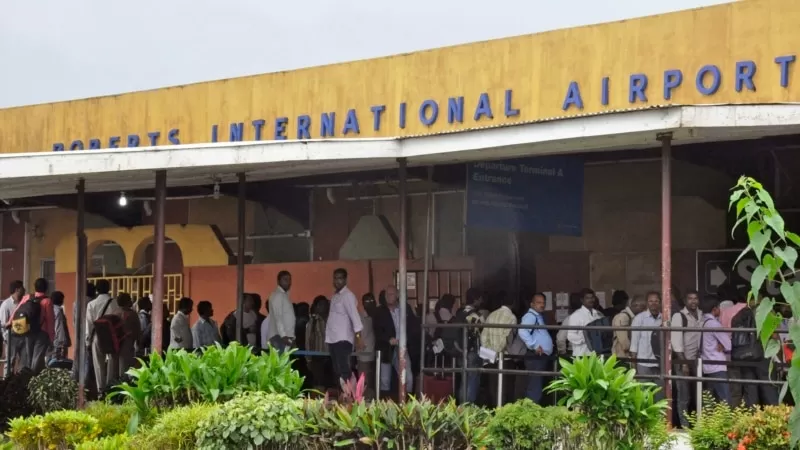Yaounde, Cameroon — Participants in Africa-Indian Ocean Aviation Week this week in Libreville, Gabon, have come together to produce a comprehensive plan to improve aviation development and safety across the continent.
The event, organized by the U.N. International Civil Aviation Organization (ICAO), brought together 350 representatives from 180 countries with the goal of enhancing air travel safety in the face of climate change and regional terrorism.
During the conference, officials from Gabon, Rwanda, and Equatorial Guinea announced their commitment to expanding their fleets and modernizing their airports. Nigeria also pledged to repair its aging infrastructure. These efforts are crucial in ensuring that Africa’s aviation industry keeps up with the growing demand for air travel.
One of the key discussions at the conference was the implementation of the Single African Air Transport Market (SAATM). This plan aims to liberalize civil aviation across the continent by removing restrictions on traffic rights for African airlines. Many participants emphasized the importance of embracing this plan and accelerating its implementation to enhance connectivity within Africa.
ICAO Council President Salvatore Sciacchitano was among those who endorsed the idea, stating on Gabon state TV that the continent needs to take advantage of the huge air transport opportunities to boost trade, create jobs, and develop the continent. He also expressed his hope for governments and investors to make good use of these opportunities.
Despite the challenges faced by the aviation industry in Africa, the ICAO reported that there were no attacks on planes in the past year. However, terrorism threats in countries such as Nigeria, Cameroon, and Niger have caused some passengers to rethink their travel plans, leading to a decrease in air travel in these regions.
The conference also highlighted the significant progress made in terms of safety in the African aviation industry. In 2023, there were no fatalities in commercial aviation accidents in Africa, a testament to the efforts made by governments and airlines to improve safety standards.
Navy Captain Loic Ndinga Moudouma, Gabon’s transport minister, announced that Gabon, Cameroon, and Equatorial Guinea have entered into an agreement to conduct search and rescue operations in the event of an accident or crash in the parts of the Atlantic Ocean that they share. This collaboration is a crucial step in ensuring the safety of air travel in the region.
Despite Africa’s population of close to 1.5 billion people, which constitutes about 18% of the world’s population, Africans only account for about 3% of global travel. This highlights the untapped potential for growth in the African aviation industry.
The International Air Transport Association (IATA) also reported positive projections for the industry in Africa. Despite the challenges faced, airlines across the continent are expected to earn at least $100 million in profit in 2024, compared to $90 million in 2023. This growth is a promising sign for the future of aviation in Africa.
The conference was a significant milestone for Gabon, as it was the first major international event hosted by the country since the military coup that ousted longtime leader Ali Ben Bongo last August. Unlike military takeovers in other West African states, such as Mali and Niger, the coup in Gabon has been widely accepted. This demonstrates the country’s stability and commitment to promoting international cooperation and development.
In conclusion, the Africa-Indian Ocean Aviation Week was a successful event that brought together key stakeholders in the aviation industry to discuss and produce a plan for improving aviation development and safety across the continent. The commitment shown by African governments and airlines to modernize and expand their fleets, as well as the implementation of the SAATM, will undoubtedly lead to a more connected and prosperous Africa. With the support of the international community, Africa’s aviation industry has the potential to reach new heights and contribute significantly to the continent’s economic growth and development.


